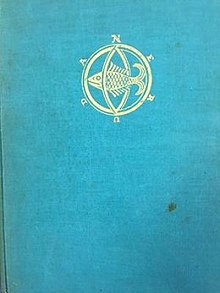據《聶魯達回憶錄》(林光譯,台北:遠景,2002,頁440),《漫歌》( Canto General By Pablo Neruda)是 Che Guevara* (June 14, 1928 – October 9, 1967) 臨終身邊的二本書 (另一本為算術教科書)。Second Canto The Heights of Macchu Picchu **〈馬丘比丘高峰〉很出名, Che Guevara 常唸給游擊隊員聽,祕魯因它頒勳章給聶魯達 (同上《聶魯達回憶錄》),
*廖志峰
**Science
*******
《聶魯達集》趙振江主編,廣東:花城,2008,其中,《漫歌》的部分翻譯章節如下:
The XV Cantos[edit] Canto General By Pablo Neruda聶魯達,《漫歌》1950
- First Canto. A Lamp on Earth. 大地上的灯
- Second Canto. The Heights of Macchu Picchu 馬丘比丘高峰
- Third Canto. The Conquistadors 征服者,中譯5首
- Fourth Canto. The Liberators 解放者,中譯一首
- Fifth Canto. The Sand Betrayed 背叛的沙子 ,中譯一首
- Sixth Canto. America, I Do Not Invoke Your Name in Vain ,中譯一首
- Seventh Canto. Canto General of Chile,中譯三首
- Eighth Canto. The Earth’s Name is Juan
- Ninth Canto. Let the Woodcutter Awaken
- Tenth Canto. The Fugitive
- Eleventh Canto. The Flower of Punitaqui ,中譯一首
- Twelfth Canto. The Rivers of Song
- Thirteenth Canto. New Year’s Chorale for the Country in Darkness
- Fourteenth Canto. The Great Ocean ,中譯十一首
- Fifteenth Canto. I Am ,,中譯一首
***
*****
Canto General
 First edition | |
| Author | Pablo Neruda |
|---|---|
| Translator | Jack Schmitt 50th Anniversary Ed. |
| Country | First edition: Mexico English Translation U.S. |
| Language | Spanish |
| Series | Latin American Literature and culture |
| Genre | Poetry |
| Publisher | University of California Press |
Publication date | 1950 |
Published in English | 1991, 1993, 2000 |
| Media type | Print Hardback and Paperback |
| Pages | 407p |
| ISBN | 0-520-22709-3 |
| OCLC | 45095554 |
Canto General is Pablo Neruda's tenth book of poems. It was first published in Mexico in 1950, by Talleres Gráficos de la Nación. Neruda began to compose it in 1938.
"Canto General" ("General Song") consists of 15 sections, 231 poems, and more than 15,000 lines. This work attempts to be a history or encyclopedia of the entire American Western Hemisphere, or New World, from a Hispanic American perspective.
The XV Cantos[edit]
- First Canto. A Lamp on Earth.
- Second Canto. The Heights of Macchu Picchu
- Third Canto. The Conquistadors
- Fourth Canto. The Liberators
- Fifth Canto. The Sand Betrayed
- Sixth Canto. America, I Do Not Invoke Your Name in Vain
- Seventh Canto. Canto General of Chile
- Eighth Canto. The Earth’s Name is Juan
- Ninth Canto. Let the Woodcutter Awaken
- Tenth Canto. The Fugitive
- Eleventh Canto. The Flower of Punitaqui
- Twelfth Canto. The Rivers of Song
- Thirteenth Canto. New Year’s Chorale for the Country in Darkness
- Fourteenth Canto. The Great Ocean
- Fifteenth Canto. I Am
The Heights of Macchu Picchu[edit]
"'The Heights of Macchu Picchu" (Las Alturas de Macchu Picchu) is Canto II of the Canto General. The twelve poems that comprise this section of the epic work have been translated into English regularly since even before its initial publication in Spanish in 1950, beginning with a 1948 translation by Hoffman Reynolds Hays[1] in The Tiger's Eye, a journal of arts and literature published out of New York from 1947–1949, and followed closely by a translation by Waldeen[2] in 1950 in a pamphlet called Let the Rail Splitter Awake and Other Poems for a Marxist publishing house in New York. The first mass-marketed commercial publication of the piece did not come until 1966 with Nathanial Tarn's translation, followed by John Felstiner's translation alongside a book on the translation process, Translating Neruda in 1980. Following that is Jack Schmitt's full translation of Canto General—the first to appear in English—in 1993. In recent years there have been several partial or full new translations: Stephen Kessler in 2001 for a photo/journey book on the ancient ruins (Machu Picchu edited by Barry Brukoff) and Mark Eisner's re-translation of seven of the twelve poems (Cantos I, IV, VI, VIII, X, XI, and XII) for an anthology celebrating the centennial of Neruda's birth in 2004, The Essential Neruda.
NTU 圖書館
2
圖書
Canto general / Pablo Neruda ; edición de Enrico Mario Santi.
Neruda, Pablo, 1904-1973.
2009.
Letras hispánicas. 318.
可在 總圖書館 總圖2F人社資料區 (PQ8097.N4 C17 2009)獲得 
圖書
Canto general / Pablo Neruda ; translated by Jack Schmitt ; introduction by Roberto González Echevarría.
Neruda, Pablo, 1904-1973.
[2011]
Latin American literature and culture (Berkeley, Calif.). 7.
可在 總圖書館 總圖2F人社資料區 (PQ8097.N4 C1713z 2011)獲得

沒有留言:
張貼留言